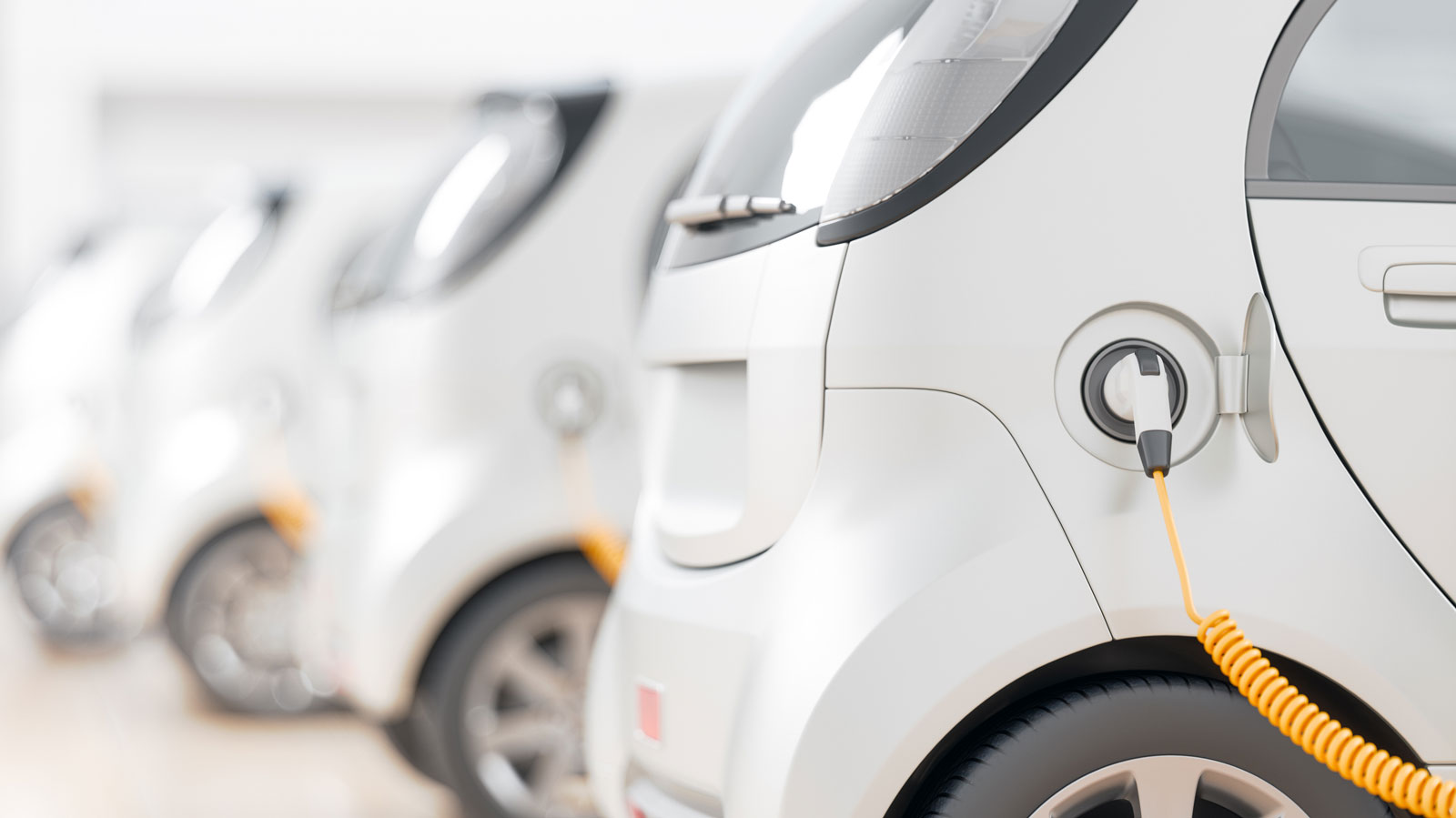
Driving Cleaner
Increasing the use of electric vehicles – especially those powered by clean, renewable sources of electricity – can protect the climate and help America get off oil. Driving Cleaner estimates that in 2025, widespread use of electric vehicles, coupled with a cleaner electricity grid, could reduce global warming pollution by 18.2 million metric tons of carbon dioxide equivalent per year, compared to conventional vehicles. Federal and state governments can realize these emission reductions by committing to policies that will increase the number of electric vehicles on the road; speed the growth of clean, renewable electricity; and curtail the use of dirty electricity sources.
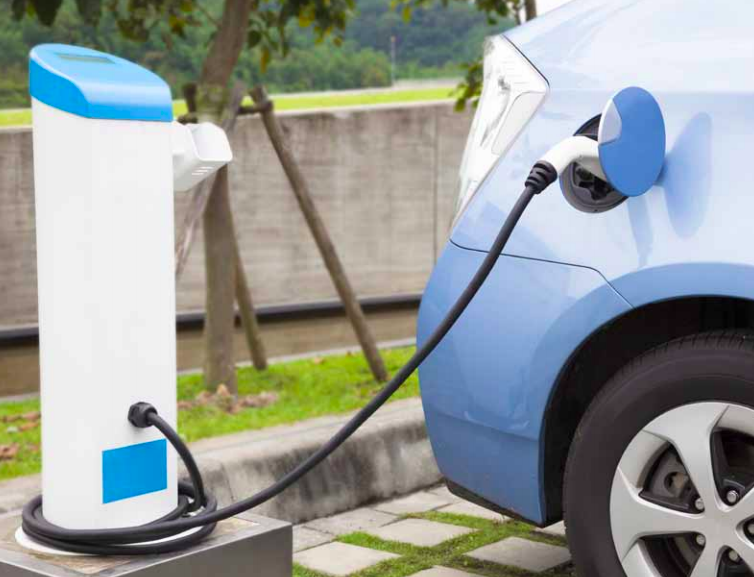
Downloads
America’s dependence on gasoline as a transportation fuel worsens global warming and threatens public health. Increasing the use of electric vehicles – especially those powered by clean, renewable sources of electricity – can protect the climate and help America get off oil.
More than 190,000 electric vehicles are already on the road in the United States, producing far less global warming pollution per mile than their internal combustion-engine counterparts. By 2025, widespread use of electric vehicles, coupled with a cleaner electricity grid, could reduce global warming pollution by 18.2 million metric tons of carbon dioxide equivalent per year, compared to conventional vehicles. That is equal to saving more than 2 billion gallons of gasoline per year or the annual emissions from 3.8 million of today’s cars and trucks.
And that is just the beginning of the climate benefits possible with increased use of electric vehicles and increased use of clean and renewable sources of electricity. Federal and state governments can realize these emission reductions by committing to policies that will increase the number of electric vehicles on the road; speed the growth of clean, renewable electricity; and curtail the use of dirty electricity sources.
Gasoline-powered automobiles contribute to global warming and harm public health.
- In 2012, gasoline used for transportation accounted for about 21 percent of all U.S. emissions of global warming pollution, roughly equal to total emissions from Japan, which is the fifth-most polluting economy in the world.
- Global warming is already seriously impacting the lives of Americans across the country in far reaching ways, from increased coastal flooding in cities like Miami, to increased crop losses in the Midwest, to a longer wildfire season in California and the Rockies.
- Pollution from burning gasoline also harms public health. Automobile emissions contribute to the formation of ozone and fine particulates, which can cause short- and long-term lung damage. Air pollution from cars, light trucks, and larger vehicles causes an estimated 53,000 early deaths each year.
Electric vehicles are far less polluting than conventional cars and trucks.
- An electric vehicle produces less global warming pollution per mile than the average new gasoline vehicle, even when emissions from vehicle production and electricity generation are included.
- Electric vehicles will become even less polluting over time. The cleaner we make our electricity system – by adding more wind, solar and other pollution-free energy sources – the less global warming pollution electric vehicles will produce. On the other hand, the more that oil companies rely on Canadian tar sands and other hard-to-reach oil deposits, the dirtier conventional cars and trucks will get.
- Rapid growth in electric vehicle penetration is critical. The California Air Resources Board estimates that if the state is to achieve the emission reductions needed to avoid the worst impacts of global warming, electric vehicles and other zero-emission vehicles would need to account for 100 percent of new vehicle sales by 2040.
Increasing the number of electric vehicles on the road would reduce global warming pollution.
- Ten states – California, Connecticut, Maryland, Massachusetts, Maine, New Jersey, New York, Oregon, Rhode Island and Vermont – require auto manufacturers to sell electric vehicles in compliance with the Zero Emission Vehicle program. This law will put more than 3.5 million zero emission vehicles on the road in these states by 2025. Even in a scenario with limited growth in renewable energy, this would prevent 4.7 million metric tons of carbon dioxide-equivalent pollution per year compared with conventional cars. That is equal to the annual emissions of almost 1 million of today’s vehicles.
- If every state adopted the Zero Emission Vehicle program, more than 13 million electric vehicles would be on the road by 2025. This would prevent 14.5 million metric tons of carbon dioxide-equivalent pollution in 2025 compared with conventional cars, equal to removing 3 million of today’s vehicles from the road or saving 1.6 billion gallons of gasoline. Health-threatening toxic pollution concentrated around urban roadways would also decline.
Electric vehicles could reduce global warming pollution even further with increased generation of electricity from clean, renewable sources of energy.
- Increasing the renewable share of the nation’s electricity mix to 25 percent by 2025 would result in 26 percent greater emission reductions than a scenario of slow renewable energy growth. With 25 percent renewable energy and a nationwide commitment to zero-emission vehicles, America could cut global warming pollution by 18.2 million metric tons of carbon dioxide-equivalent – the equivalent of saving more than 2 billion gallons of gasoline per year or the annual emissions from 3.8 million of today’s cars and trucks.
- Deploying electric vehicles may also facilitate increasing penetration of renewable electricity into the electricity system. By connecting their batteries to the grid when parked, electric vehicles may make it possible to capture excess clean electricity when production is high.
- Widespread use of zero-emission vehicles would also deliver broad health benefits. The American Lung Association calculates that the reduced air pollution from using electric vehicles powered by one-third renewable electricity sources would avoid 10,000 asthma attacks annually in California.
Federal and state governments should adopt policies that will increase the number of electric vehicles on the road and clean up the electricity grid. Climate scientists estimate that the United States needs to cut emissions of climate-changing pollution by more than 80 percent by mid-century in order to prevent the most harmful impacts of global warming. To meet that goal, America must get off oil. Electrifying our transportation is a critical strategy.
- The nation should seek to ensure that all new vehicles are zero emission by 2040.
- Delaware, Pennsylvania and Washington – which have already adopted the Low Emission Vehicle program – should adopt the corresponding Zero Emission Vehicle program that requires auto manufacturers to deploy emission-free cars and trucks.
- All states should adopt policies supporting use of electric vehicles. Supportive policies include standardizing requirements for installation of charging infrastructure, supporting construction of charging infrastructure in multi-family residences and public areas, buying zero-emission vehicles for public fleets, and establishing financial incentives. States should also develop policies to support electrification of buses, garbage trucks and other medium- and heavy-duty vehicles that aren’t included in the zero-emission vehicle program.
- The federal government should extend policies supporting zero-emission vehicles, including tax credits for the purchase of electric vehicles and plug-in hybrid electric vehicles, investment in research and development of electric vehicle technologies, and promotion of workplace charging infrastructure.
- The nation should reduce global warming pollution from the electricity sector. Steps include setting a goal of generating at least 25 percent of the nation’s electricity from clean, renewable sources such as wind and solar energy by 2025, and cutting carbon pollution from new and existing power plants.
Topics
Authors
Elizabeth Ridlington
Associate Director and Senior Policy Analyst, Frontier Group
Elizabeth Ridlington is associate director and senior policy analyst with Frontier Group. She focuses primarily on global warming, toxics, health care and clean vehicles, and has written dozens of reports on these and other subjects. Elizabeth graduated with honors from Harvard with a degree in government. She joined Frontier Group in 2002. She lives in Northern California with her son.
Find Out More
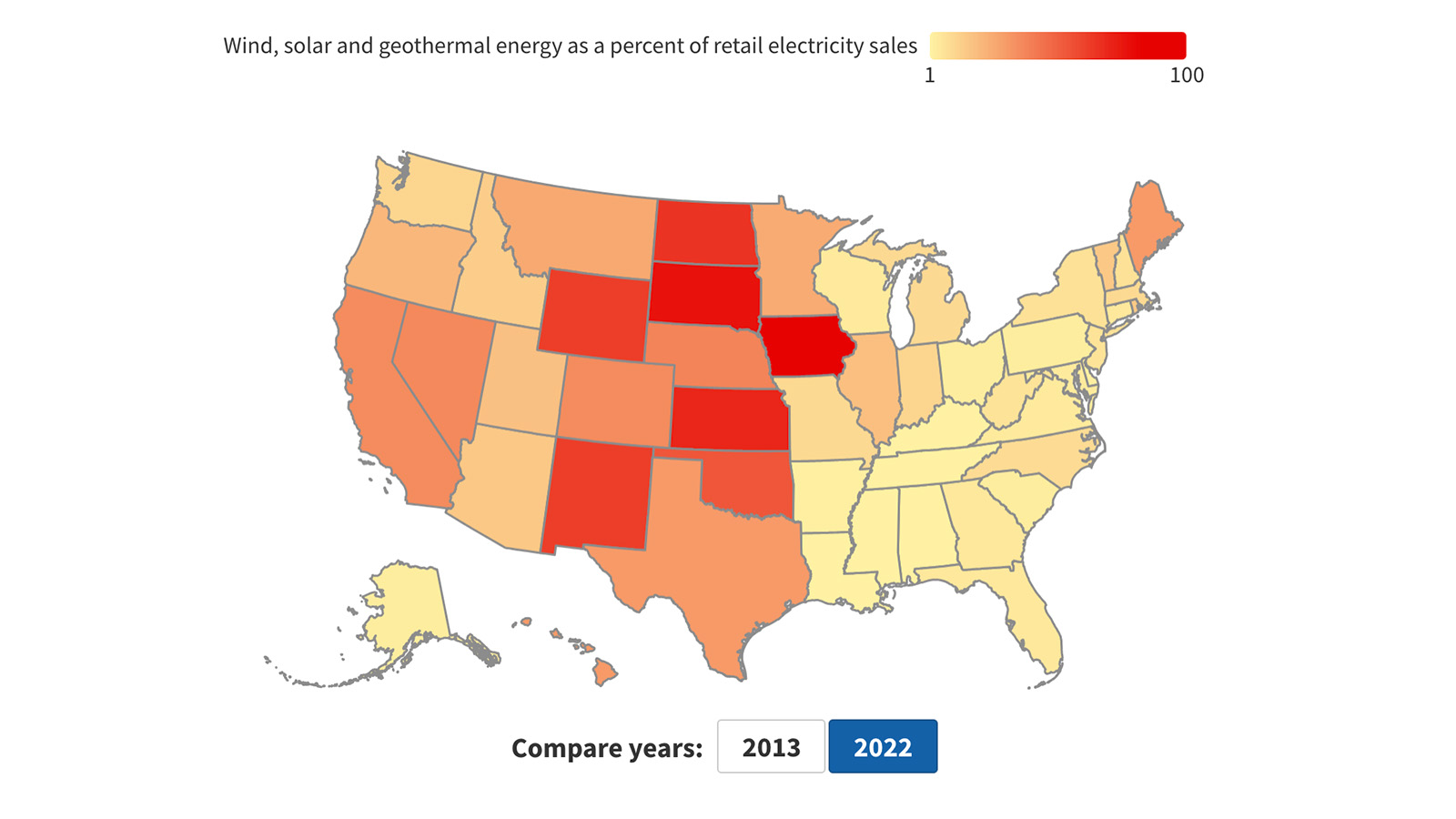
Renewables On The Rise Dashboard
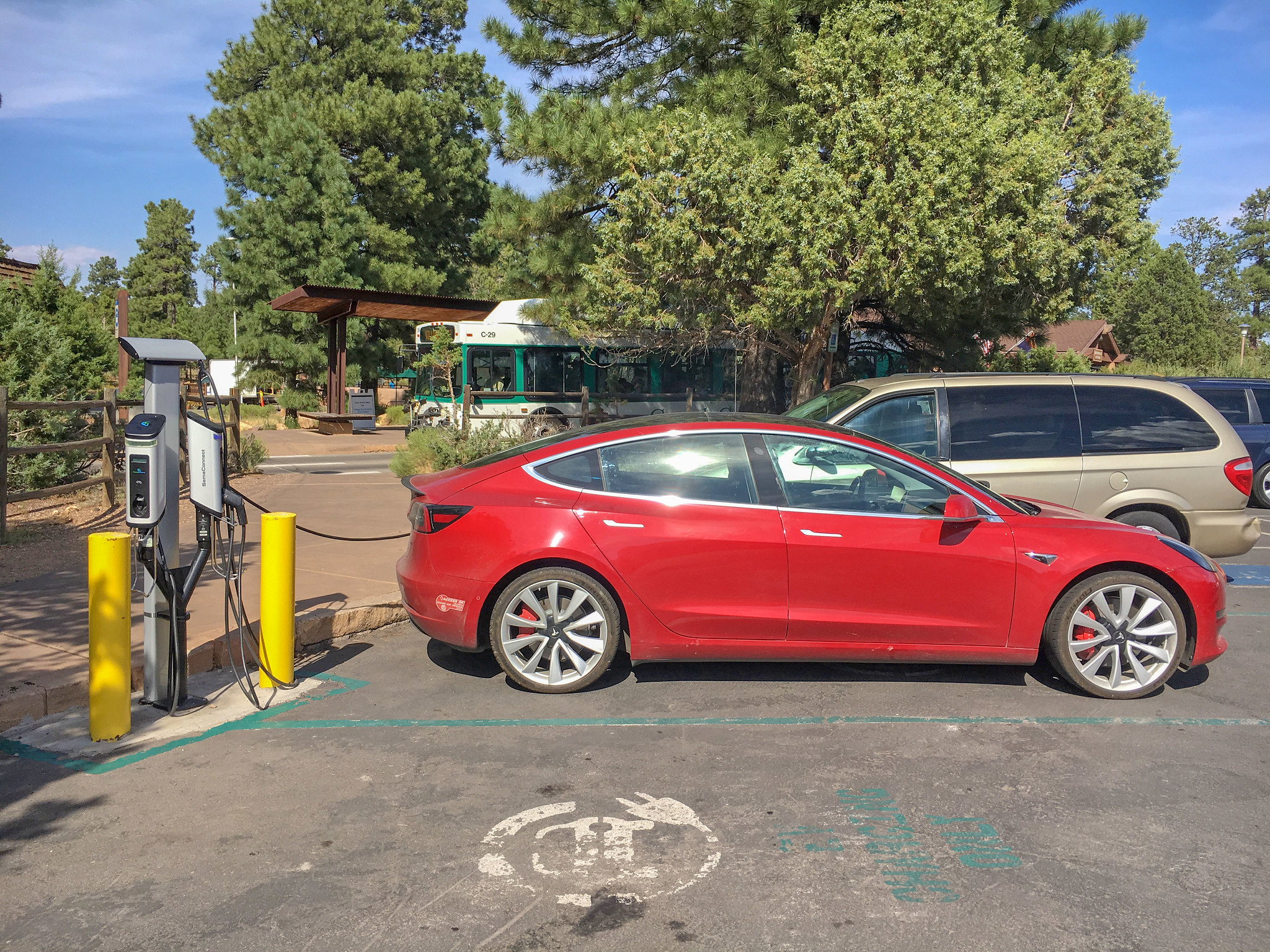
Overcharged: How state EV fees discourage clean choices
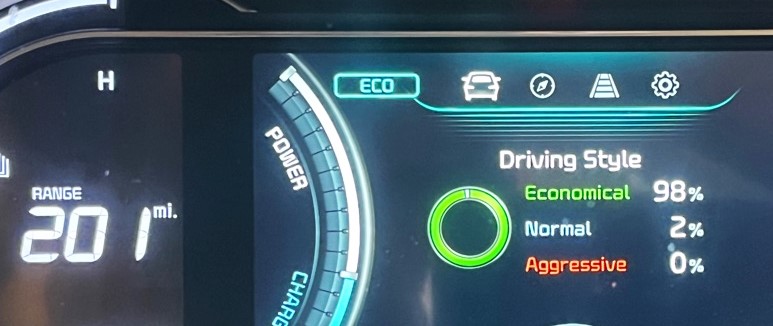
Electric vehicles are good. We can make them better.
